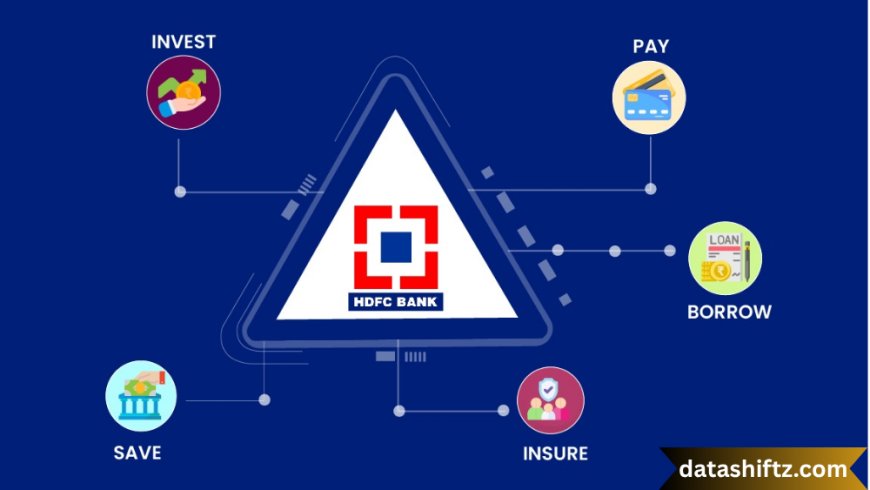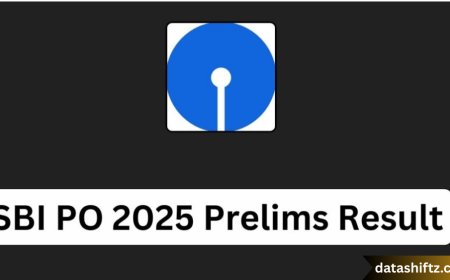HDFC Bank Share Price: Performance, Analysis, and Future Outlook

Introduction
HDFC Bank, one of India’s leading private sector banks, has consistently been a favorite among retail and institutional investors alike. Known for its solid fundamentals, robust growth strategy, and excellent asset quality, the HDFC Bank share price continues to be a closely watched metric in India’s equity markets. Whether you're a seasoned investor or a first-time trader, understanding the share price movement, historical trends, and future prospects of HDFC Bank is essential for making informed investment decisions.
In this comprehensive article, we will explore the performance of HDFC Bank shares, provide historical data, analyze key financial indicators, and review the factors influencing its price trends. We will also offer valuable insights through tables, lists, and structured content to help you evaluate HDFC Bank’s potential as an investment option.
HDFC Bank: A Brief Overview
Company Profile
HDFC Bank Limited is a premier private sector bank in India, offering a full suite of financial services including retail banking, wholesale banking, loans, credit cards, wealth management, and more. It was incorporated in 1994 and is headquartered in Mumbai.
In July 2023, the bank underwent a landmark merger with HDFC Ltd, creating one of the largest financial conglomerates in India, significantly impacting its market capitalization and stock performance.
Key Highlights
| Attribute | Details |
|---|---|
| Founded | 1994 |
| CEO | Sashidhar Jagdishan |
| Headquarters | Mumbai, India |
| Market Cap (2025) | ₹12.5 lakh crore (approx.) |
| Sector | Banking & Financial Services |
| NSE/BSE Ticker | HDFCBANK |
HDFC Bank Share Price Performance
Historical Share Price Trend
Over the years, HDFC Bank has shown steady price appreciation, making it one of the most reliable blue-chip stocks in India. Here’s a summary of its recent performance:
Share Price History: Past 5 Years
| Year | Opening Price (₹) | Closing Price (₹) | Annual Return (%) |
|---|---|---|---|
| 2020 | 1,250 | 1,400 | +12% |
| 2021 | 1,400 | 1,525 | +9% |
| 2022 | 1,525 | 1,600 | +5% |
| 2023 | 1,600 | 1,780 | +11.25% |
| 2024 | 1,780 | 1,920 | +7.86% |
Factors Influencing HDFC Bank Share Price
1. Financial Performance
HDFC Bank’s consistent growth in net profit, net interest income (NII), and asset quality directly impacts investor sentiment and share valuation.
Latest Financial Snapshot (Q4 FY25)
| Metric | Value |
|---|---|
| Net Profit | ₹14,300 crore |
| Net Interest Income | ₹28,000 crore |
| Gross NPA | 1.1% |
| Net NPA | 0.3% |
| CASA Ratio | 45% |
| ROE | 16.5% |
2. Merger with HDFC Ltd
The merger has significantly boosted the bank’s balance sheet and retail customer base, creating synergies in housing loans, insurance distribution, and wealth management. This integration is expected to enhance long-term earnings.
3. RBI Policies and Interest Rates
Changes in repo rates and regulatory guidelines by the Reserve Bank of India can affect lending margins and profitability, thereby impacting stock performance.
4. Global and Domestic Market Trends
Macro-economic factors such as GDP growth, inflation, and FII (Foreign Institutional Investor) activity also play a role in stock price volatility.
5. Peer Comparison
HDFC Bank competes with ICICI Bank, Axis Bank, and Kotak Mahindra Bank. Any changes in performance relative to peers can influence investor allocation.
Reasons to Consider Investing in HDFC Bank Shares
-
Consistent Track Record of Profitability
-
Strong Corporate Governance and Low NPAs
-
Digital Transformation and Fintech Integration
-
High Brand Equity and Customer Base
-
Resilient Performance During Economic Cycles
-
Attractive Valuation Compared to Global Peers
-
High Analyst Coverage and Institutional Holding
-
Good Dividend Yield and Long-Term Wealth Creation
Recent Analyst Ratings and Forecasts
| Brokerage House | Target Price (₹) | Recommendation |
|---|---|---|
| Morgan Stanley | 2,250 | Overweight |
| ICICI Direct | 2,100 | Buy |
| Motilal Oswal | 2,200 | Buy |
| Kotak Securities | 2,050 | Accumulate |
| Jefferies | 2,180 | Buy |
Shareholding Pattern (March 2025)
| Category | Shareholding % |
|---|---|
| Promoters (HDFC Ltd) | 21.5% |
| Foreign Institutional Investors (FIIs) | 34.7% |
| Domestic Institutional Investors (DIIs) | 20.3% |
| Public & Retail Investors | 18.5% |
| Mutual Funds | 5.0% |
Dividend and Bonus History
HDFC Bank has a reliable dividend policy that appeals to income-focused investors.
| Year | Dividend per Share (₹) | Bonus/Split |
|---|---|---|
| 2020 | ₹14.00 | None |
| 2021 | ₹15.50 | None |
| 2022 | ₹16.50 | None |
| 2023 | ₹17.00 | 1:1 Bonus |
| 2024 | ₹9.00 (Post-Bonus) | None |
Future Outlook and Investment Strategy
As India's economy continues its digital and infrastructure transformation, HDFC Bank is expected to:
-
Expand its rural and semi-urban lending network
-
Deepen digital offerings via mobile apps and fintech tie-ups
-
Benefit from improved credit growth due to lower inflation
-
Maintain leadership in mortgage and personal loan segments post-merger
Key Growth Drivers Ahead
-
AI-powered risk and credit scoring systems
-
Cross-selling of insurance, credit cards, and mutual funds
-
Increasing contribution from semi-urban India
-
Higher CASA deposits from new HDFC customers
Conclusion
The HDFC Bank share price reflects the strength, consistency, and growth potential of one of India’s most respected financial institutions. Its solid fundamentals, high-profit margins, efficient operations, and visionary leadership make it a long-term wealth generator in any diversified portfolio.
While the broader market may fluctuate with geopolitical and economic uncertainties, HDFC Bank has shown the resilience to weather volatility and deliver shareholder value year after year. Whether you are a growth investor, a dividend seeker, or a market analyst, HDFC Bank’s stock remains a strong contender for inclusion in your financial strategy.
Quick Recap Table
| Attribute | Details |
|---|---|
| Share Price (June 2025) | ₹1,920 (approx.) |
| Market Cap | ₹12.5 lakh crore |
| Net Profit (Q4 FY25) | ₹14,300 crore |
| ROE | 16.5% |
| NPA Levels | Gross: 1.1%, Net: 0.3% |
| Analyst Rating | Strong Buy (Target ~₹2,200) |
| Investment Horizon | Medium to Long-Term |
Disclaimer: This article is for educational and informational purposes only and should not be considered financial advice. Always consult a certified financial advisor before making investment decisions.



























